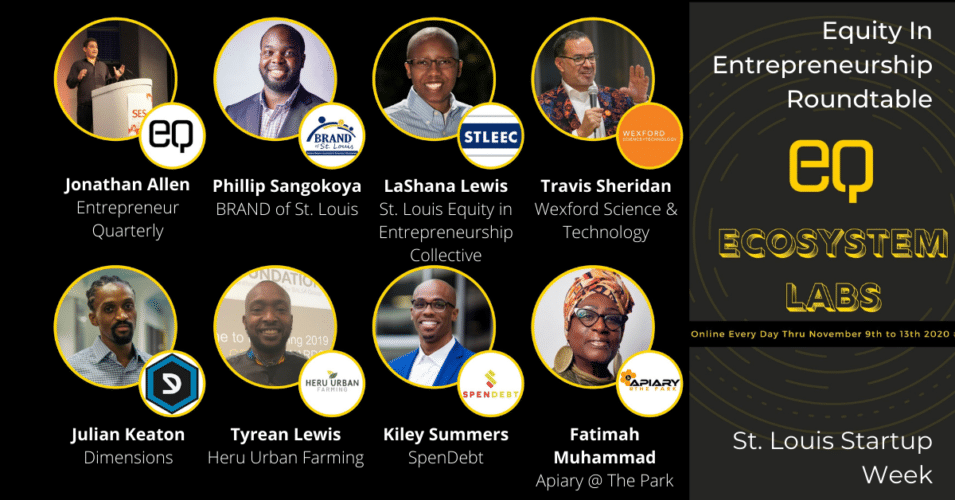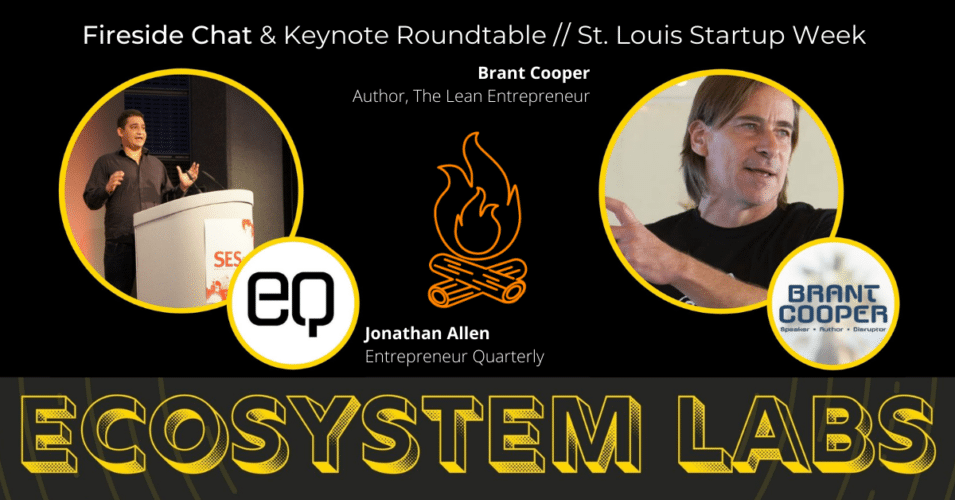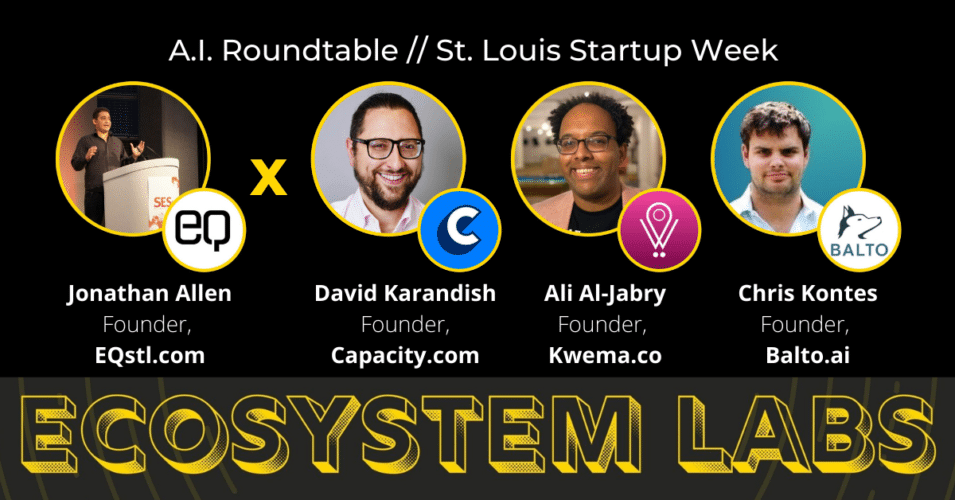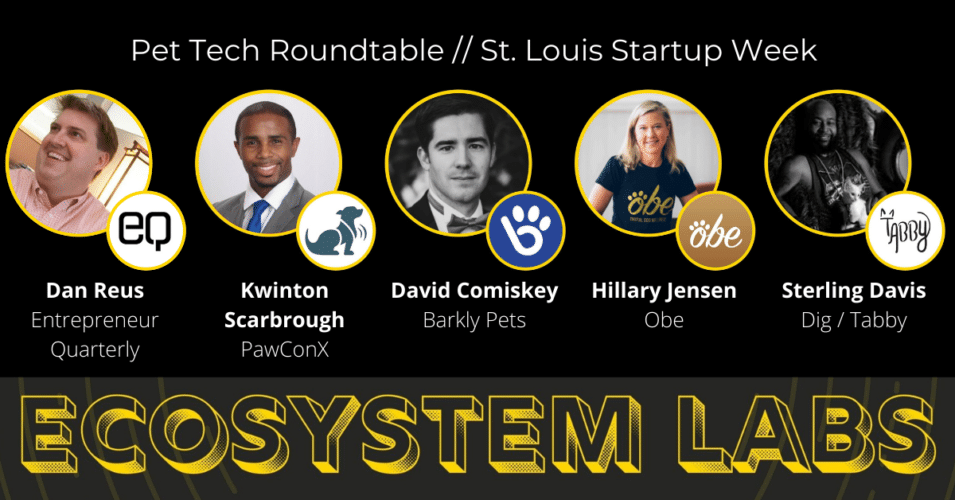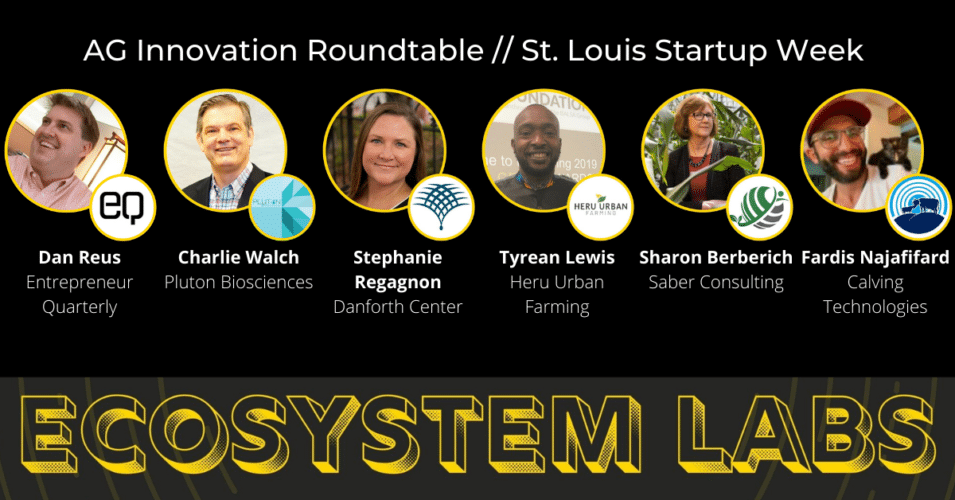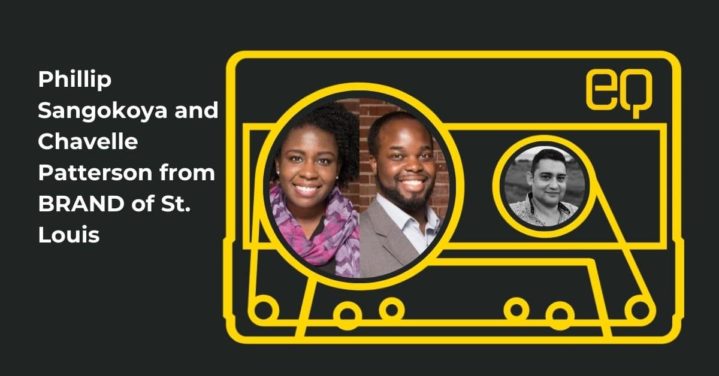
Presented by BRAND of St. Louis
BRAND of St. Louis Research Brings Fresh Insights Into Leveling Out Inequalities
Trying to get rid of socio-economic disparities along racial lines is a noble aim but one which can seem so overwhelming that it begs one huge question: where on earth to begin? Meet Phillip Sangokoya and his business partner —and wife— Chavelle Patterson.
Philip will be speaking at St. Louis Startup Week and joining our roundtable discussions at EQ Ecosystem Labs. Register here to attend.
They run BRAND of St. Louis and they believe they have the answer which is to accelerate the development of collaborative and equitable wealth-building solutions. Together with students from the Brown School at Washington University, St. Louis, they recently conducted some enlightening research into community collaboration. EQ caught up with them to find out more.
Listening To the Community
The purpose of the research was to look at the factors which influence and promote collaboration for Black communities. It was felt that there was plenty of scope to use the results in areas of St. Louis where grassroots entrepreneurship was lacking and which were not taking advantage of opportunities that were seemingly available.
With the help of focus groups, they drilled down to find out what collaboration meant for Black individuals. They factored in dependencies such as zip code, socio-economic status and background.
What they found was that there were several key factors that were necessary to promote collaboration within Black communities.
Strong Leadership
These factors included a requirement to have strong leaders who had a growth mindset and could build trust whilst drawing out shared interests and goals. There also needed to be professional networks to support these leaders in ways that would help them find professional development opportunities.
It was found that having a complex or challenging domestic environment could really be an obstacle to leaders or entrepreneurs reaching their potential. If basic needs were not met then the research concluded that there was no way a person could be fully invested in innovation and collaboration.
Despite the challenges facing the Black community, what the study leaders found was a real willingness and energy within it to find solutions that matched the needs of individuals. When it was recognized that there were community organizations available to help, this galvanized a positive and tangible approach.
Trust, Accountability and Growth Mindset
Chavelle believes that if individuals see people whom they respect and who have a strong growth mindset making changes in the community, then they will be more inclined to take on the same behavioral traits. “Just recruiting leaders that have this mindset could help to start creating even more,” she says.
At the same time, BRAND of St. Louis listened carefully to what the community said it needed rather than imposing something which, however well-intentioned, may not have been appropriate. Throw into the mix the cultural differences within communities and it’s easy to see that there isn’t a ‘one size fits all’ for every problem.
Trust, accountability and growth mindset are important but they need to be a good match with all stakeholders. “It’s not just about how we get people of African descent to collaborate with each other, it’s also about communicating shared values with communities that are different,” says Chavelle.
She went on to explain one of the keys which can open up collaboration. “Building trust by having objectives and benefits clearly stated is probably a great place to start.”
The Importance of Small Wins
In order to achieve better collaboration, Phillip places the emphasis on building upon small wins. “We need to recognize those small wins to eventually get to full collaboration and collaborative effort,” he maintains.
If a collaborative project has worked well, he thinks it’s essential that it’s celebrated so that people can build up trust and a fuller commitment to collaboration. The idea is that small steps will lead to bigger and better collaboration in the future.
The pair acknowledge that theories such as ‘the speed of trust’ as defined in Stephen Covey’s book are already out there but are normally used in a more formal, business-style situation and perhaps need contextualizing so that they’re a better fit within the Black community.
“Corporate America has all these books, articles and resources,” says Phillip. These, he feels, sometimes need to be translated and a shared language found so that they feel relevant to creatives and entrepreneurs on the ground.
The Research Lives On
The pair touch on cultural barriers and understandable historical grievances. These can have a negative impact on trust and collaboration and will not be resolved overnight, they say.
Phillip says barriers are not, however, always about race or ethnicity but about individual experiences and how these experiences have been molded. These can have an impact on whether or not someone trusts quickly or whether or not a person wants to focus on something like respect for elders, for example.
The pair are keen to emphasise that they want their research to be shared and that it is something that they hope will blossom and grow as more people react and contribute to it.
You can find out more here about BRAND of St. Louis and the work they do. Chavelle and Phillip would love to hear about your experiences of collaboration, so get in touch with them now.

